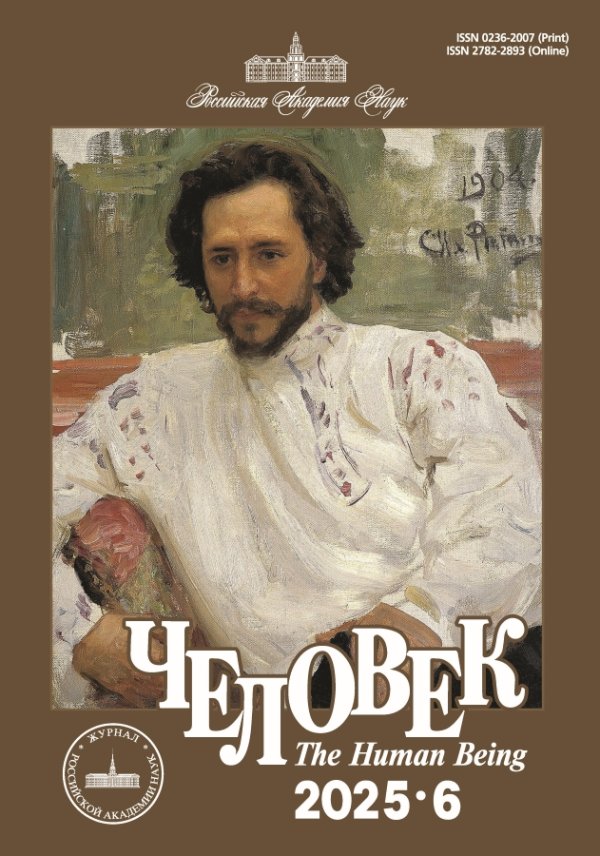Gifts or Sacrifices, Limits or Boundaries: a Comparative Analysis of Orthodox and Catholic Approaches to Transplantation
- Authors: Siluyanova I.V.1
-
Affiliations:
- Pirogov Russian National Research Medical University
- Issue: Vol 36, No 2 (2025)
- Pages: 141-154
- Section: Symbols. Values. Ideals
- URL: https://journals.rcsi.science/0236-2007/article/view/290832
- DOI: https://doi.org/10.31857/S0236200725020088
- ID: 290832
Abstract
The problems of human life and death have always been at the center of Christian culture’s attention. Transplantology is a branch of modern medicine that ensures the preservation of life by changing attitudes towards death. Human death is associated with practical moral and medical problems of transferring organs, tissues, and cell cultures from person to person, dead or alive, as well as animal or artificially created organs. The introduction of new medical technologies makes it necessary to address issues about the ethical meaning of death, the moral status of a deceased person, the right of doctors to remove organs of the deceased and the human right to his body after death, and the possibility of religious justification for donation. The article analyzes the solution of these problems in the system of Christian ethical consciousness. The method of achieving this goal is a comparative analysis of official documents of the Russian Orthodox Church and the Catholic Church. The research is carried out in a certain sequence: general attitude to transplantation, theological justification of the work of a transplant doctor, explanation of the principle of solidarity, attitude to types of transplantation, attitude to the dead body, assessment of criteria for human death, abuse and trade of human organs and tissues, donor use of human embryo and fetus tissues in regenerative medicine. In conclusion, differences and common positions in understanding the boundaries that should not be violated in matters of human life and death are identified in the “Fundamentals of the Social Concept of the Russian Orthodox Church” (2000) and in two Catholic documents — the “Charter of Health Workers” (1994) and the “New Charter of Health Workers” (2018).
Full Text
About the authors
Irina V. Siluyanova
Pirogov Russian National Research Medical University
Author for correspondence.
Email: siluan@mail.ru
ORCID iD: 0000-0001-9321-9519
DSc in Philosophy, Professor of the Departament of Bioethics of the Institute of Humanities
Russian Federation, 1, Ostrovityanov St., Moscow, 117997References
- Larchet Z.-K. Chelovecheskoe telo v svete pravoslavnogo veroucheniya [The Human Body in the Light of the Orthodox Faith], transl. from French by U.S. Rakhnovskaya. Moscow: Sretenskii monastyr' Publ., 2021.
- Novaya Khartiya rabotnikov zdravookhraneniya [A New Charter for Healthcare Workers]. 2018 (rus.) [Electronic resource]. URL: https://bit.ly/2BxVK7T (date of access: 20.09.2024).
- Osnovy sotsial’noi kontseptsii Russkoi Pravoslavnoi Tserkvi [The Foundations of the Social Concept of the Russian Orthodox Church]. Moscow: LBComputers Publ., 2001.
- Sofronii (Sakharov), arkhimandrit. Dukhovnye besedy: v 2 t. [Spiritual Conversations: in 2 vol.]. Vol. 2. Esseks: Sv. Ioanno-Predtechenskii monastyr’; Moscow: Palomnik Publ., 2007.
- Khartiya rabotnikov zdravookhraneniya [Charter of Healthcare Workers]. Vatikan; Moscow: Papskiy sovet po apostol’stvu dlya rabotnikov zdravookhraneniya Publ., 1996.
- Khristianstvo: Entsiklopedicheskii slovar’: v 3 t. [Christianity: The Encyclopedic Dictionary: in 3 vol.]. Vol. 1. Moscow: Bol’shaya Rossiiskaya entsiklopediya Publ., 1993.
- Shmeman A. Liturgiya smerti [The Liturgy of Death]. Moscow: Granat Publ., 2013.










